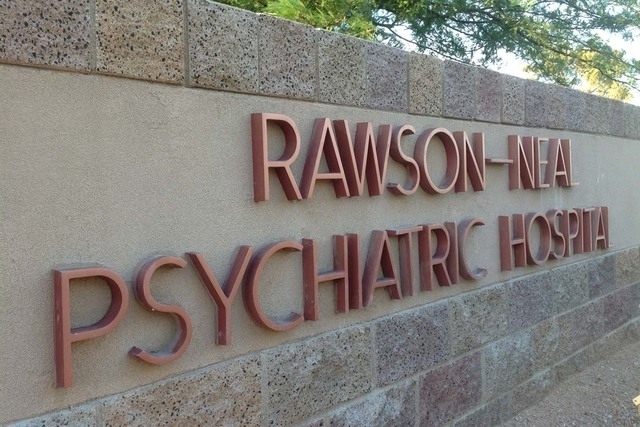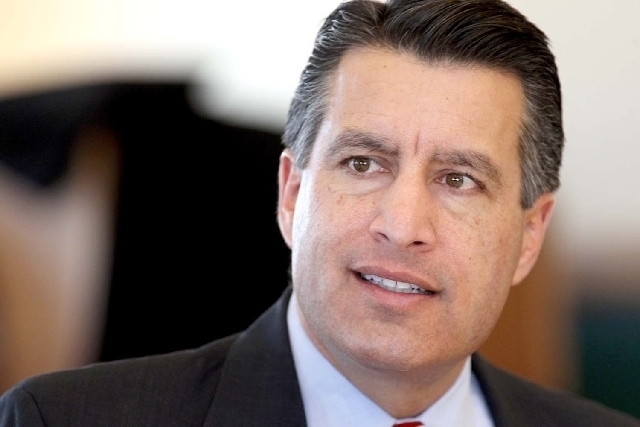U.S. Civil Rights Commission to explore ‘patient dumping’
WASHINGTON — The federal body that examines the nation’s civil rights policies and practices is setting its sights on “patient dumping,” prompted by reports about the practice in Nevada and elsewhere.
The U.S. Commission on Civil Rights has adopted the topic as its major focus of study this year, a spokeswoman said Friday. The commission has scheduled a briefing for its members on Feb. 14 by officials from the federal Department of Health and Human Services, scholars and advocates for the disabled.
Witnesses will include Staci Pratt, legal director of the American Civil Liberties Union of Nevada, and Hernan Vera, chief executive officer of Public Counsel, a California pro bono law firm that has worked on cases of patient dumping in Los Angeles.
The subject was proposed by David Kladney, a civil rights commissioner since 2011 and an attorney from Reno. Kladney said Friday he closely followed reports of officials at the state-owned Rawson-Neal Psychiatric Hospital in Las Vegas routinely giving mentally ill patients one-way bus tickets with no guidance for care at their destinations.
Kladney said that he worked extensively with the mentally disabled in his practice, and that what was happening in Nevada is symptomatic of struggles confronting care for mentally ill patients across the country.
“I think they are one of the most underserved segments of our society,” he said. “There is no real cogent kind of service level for them throughout the country.”
“It’s not necessarily a Nevada problem,” Kladney said. “This is a problem that is nationwide.
“This also has to do with cost and money and what the government pays and doesn’t pay” hospitals to care for patients, he said.
In response to the patient-dumping scandal reported by the Sacramento Bee, Gov. Brian Sandoval fired two Rawson-Neal employees and gave three others lesser discipline.
Discharge policies at the facility were revised to require a chaperone for departing patients and for discharge paperwork to be reviewed more closely. The state has begun hiring an additional 23 staffers including psychologists and social workers and increased the number of beds by remodeling existing beds at Rawson-Neal, officials said.
Sandoval also appointed an 18-member commission to examine the state’s mental health system and make recommendations.
“Nevada is committed to ensuring that vulnerable members of society are treated with dignity and care,” Sandoval said in a statement Friday. “As I have stated before, improperly discharging one patient is one patient too many.”
The U.S. Commission on Civil Rights might conclude its study with a report and recommendations to Congress and the White House about patient dumping, officials said. The work must conclude by Sept. 30.
According to a commission briefing paper, the panel will seek to learn how many patients across the country may be subject to involuntary relocation or jail.
The problem isn’t limited to Nevada. A commission document cites a Las Vegas Review-Journal report in September about a young California woman alleged to have been discharged from a psychiatric facility in Napa, Calif., and driven to Las Vegas.
Also, officials in New York and Hawaii have bought one-way tickets out of town for homeless individuals and families who could not be served locally, according to news reports cited in briefing papers.
And in the past several years, authorities in Southern California have cracked down on cases of medical facilities accused of dumping people on the street or on Skid Row, including one case of a woman found still wearing her hospital gown and arm tag. Kaiser Permanente in 2007 agreed to settle a group of civil and criminal charges of patient dumping brought by the Los Angeles city attorney’s office
The Civil Rights Commission also plans to examine what triggers are in place to detect potential violations of the federal Emergency Medical Treatment and Labor Act that requires hospitals to treat emergency patients and not discharge them before their conditions are stabilized.
“Of concern is the extent to which patients with a psychiatric disability are denied adequate care and whether there has been systemic neglect of this group,” the commission said.
Nevada Democrats are trying to use the patient dumping scandal as a mark against Sandoval as he runs for re-election this year. Kladney is a Democrat who was appointed to the commission by Senate Majority Leader Harry Reid, D-Nev.
But Kladney emphasized that his call for an examination of patient dumping was not motivated by home state politics. He noted the eight-member federal commission — four Democrats, two Republicans and two Independents who described themselves as conservative — voted unanimously in November to proceed with the examination.
“The governor cannot allocate funds on his own,” he said. “You have to have the Legislature, the governor. This is a problem that has gone on for a long time.
“The governor is trying to respond to it,” Kladney said. “The Legislature is not in session. It’s a money issue. These are things that cross both party lines. I actually get very defensive about that.”
Las Vegas Review-Journal reporter Yesenia Amaro contributed to this report. Contact Stephens Washington Bureau Chief Steve Tetreault at stetreault@stephensmedia.com or 202-783-1760. Follow him on Twitter @STetreaultDC.


















